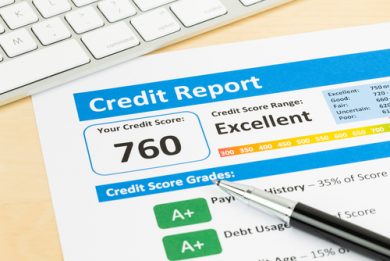6 Steps To Improving Your Credit Score In 12 Months Or Less
 A good credit score can be your ticket to the good life – lower interest rates, less deposit requirements, preferential treatment for loans and even rentals. On the other hand, having a bad credit score can be the financial equivalent of being a leper. Luckily, increasing your credit score isn’t very hard.
A good credit score can be your ticket to the good life – lower interest rates, less deposit requirements, preferential treatment for loans and even rentals. On the other hand, having a bad credit score can be the financial equivalent of being a leper. Luckily, increasing your credit score isn’t very hard.
Lets say, for example, you are looking to purchase a home. Your credit score will be a determining factor in the approval process and can also determine the interest rate. A small positive change in your scoring may decrease your mortgage interest rate by as much as 2 basis points. This small change will also affect the loan amount you wish to borrow.
Reviewing your credit report can be an overwhelming experience, especially if your credit is far from stellar. Do not be discouraged, all hope is not lost. If you are willing to take some simple steps over a period of time, you too can reap the benefits of having better credit.
By following the six simple steps below, you could be part of the FICO elite in just 12 months…
-
Step One – Get Your Credit Report
The first thing you need to do is arm yourself with information. In order to improve your credit score, you need to find out where you stand financially, by getting your credit report. The best part is, it won’t cost you a thing. You can get you free credit report from AnnualCreditReport.com once a year and it’ll give you details about your credit score, outstanding payments and everything else relating to your finances.
-
Step Two – Take A Closer Look At Your Budget
The next step is to take a close look at your budget. You need to take an inventory of how you’re spending your money and where you can afford to cut costs.
-
Step Three – Manage Your Debts
It’s no secret that debt can quickly get out of hand and decimate your credit score. Even one late payment can have a detrimental effect on your score. That’s why you need to take a good look at all of your debts, how much money you spend paying them off and how quickly you can settle them. This includes paying close attention to how you use your credit card and making sure you pay more than the minimum amount required every month.
-
Step Four – Keep A Few Old Accounts Open
A common mistake people many make when trying to improve their credit score is closing all of their accounts. This might seem like a good idea in theory but it’s actually a very bad idea. Having a few accounts that you pay regularly and on time will substantially boost your credit score because it’ll prove that you can handle debt responsibly.
-
Step Five – Be Patient
Unfortunately, improving your credit score won’t happen overnight. It’ll take at least a few months before you start to see a substantial change. The good news is that being patient is the only ‘hard’ part of this process and once it’s done you’ll be able to take full advantage of all your consistent work.
-
Step Six – If You’re In A Real Hurry, Use Rapid Rescoring
Sometimes, you just may not be able to wait. Maybe you’re negotiating with a bank for a mortgage or need to buy a new car urgently. In this case, you can use rapid rescoring to quickly boost your credit score. This process will help you correct any errors in your credit report and pay off any outstanding balances. Unfortunately, this service doesn’t come free. It can cost $50 per account but the amount of money you could save when procuring a loan might make this option well worth it.
